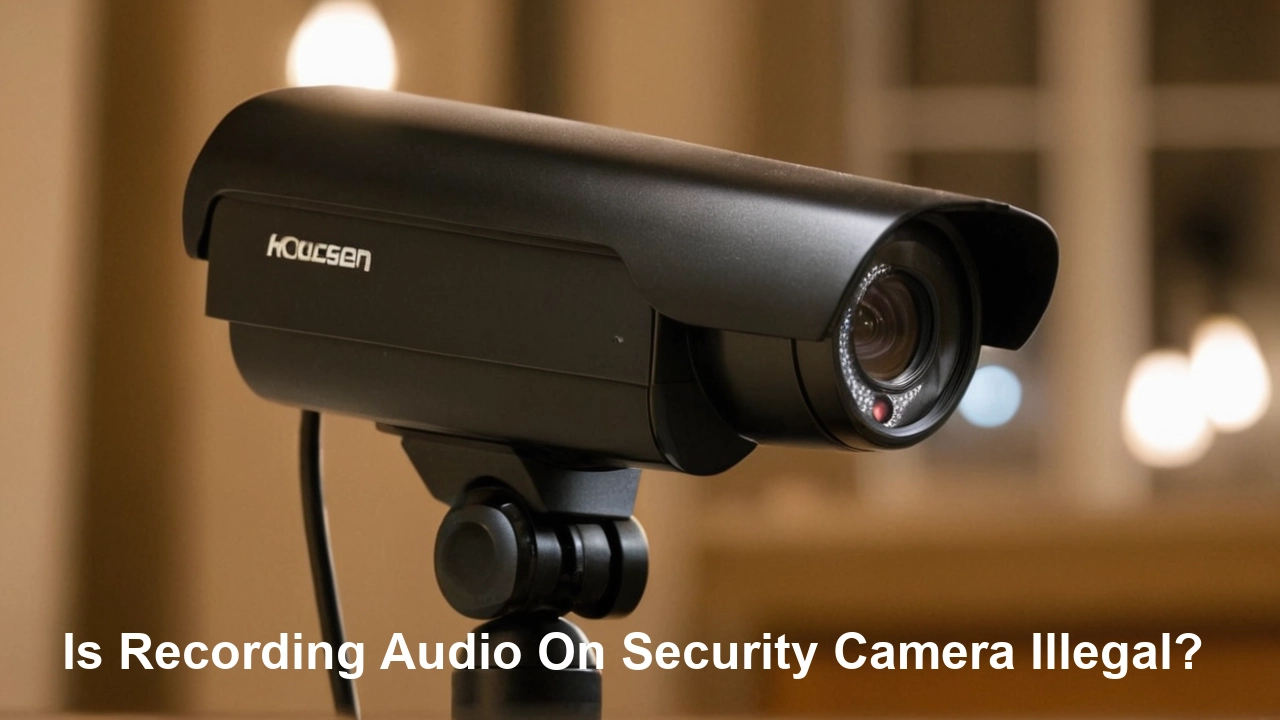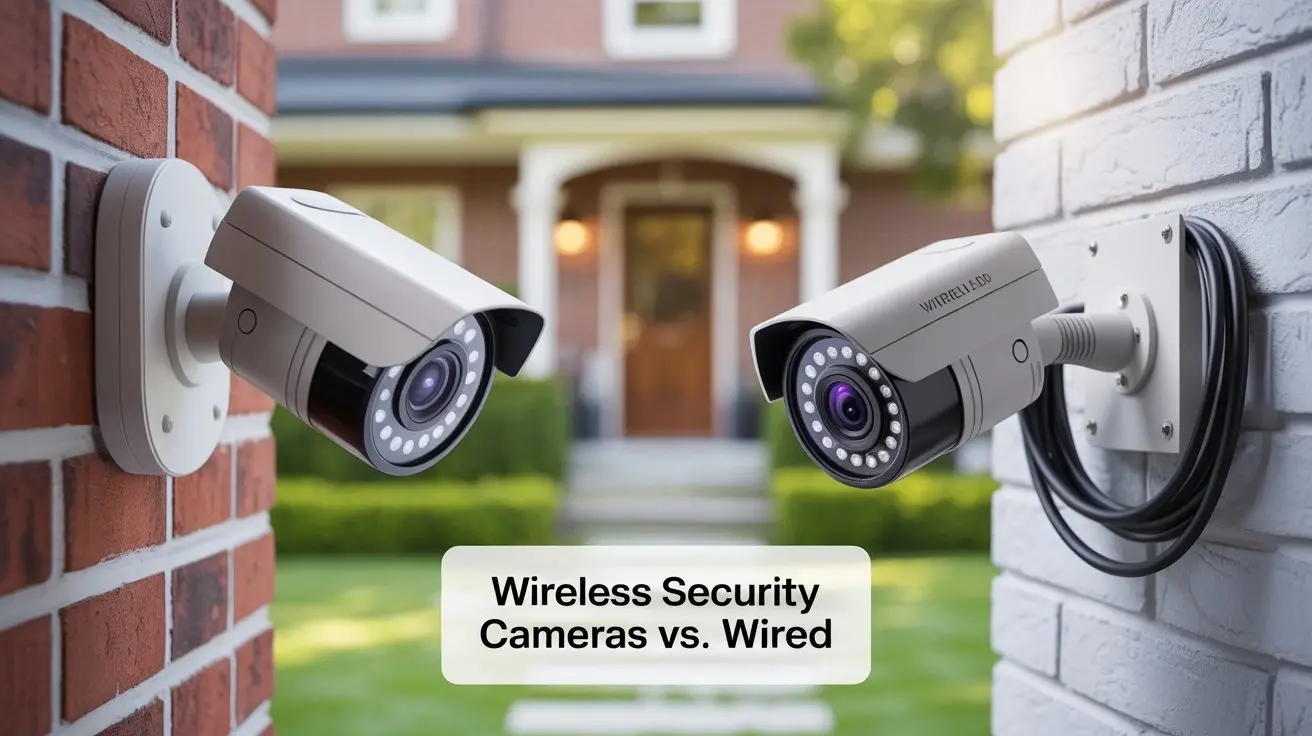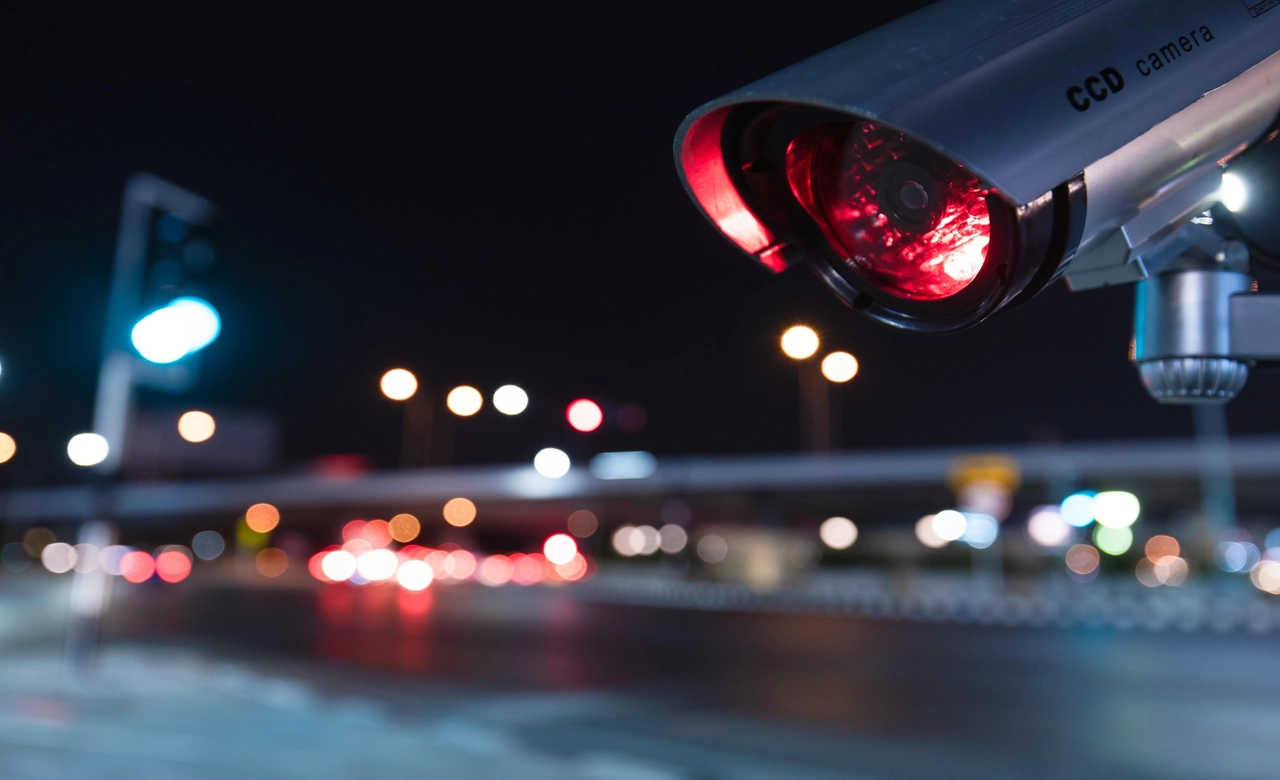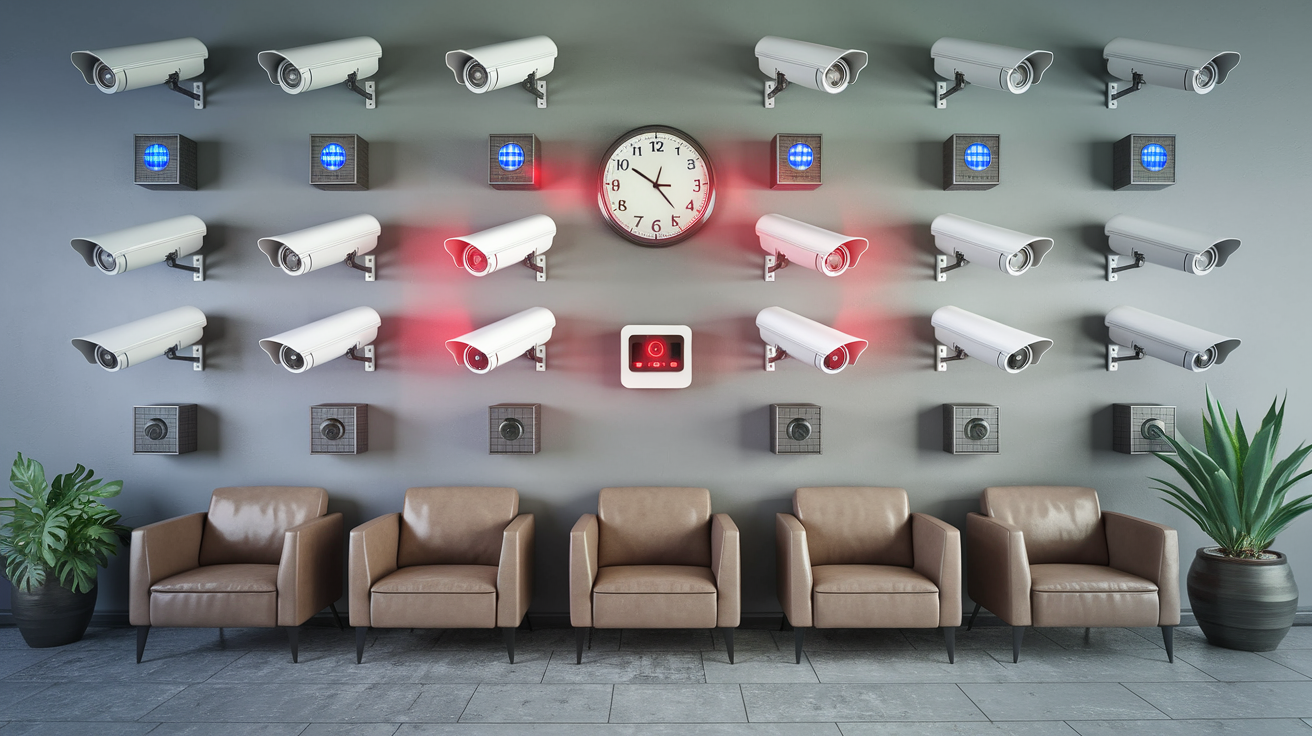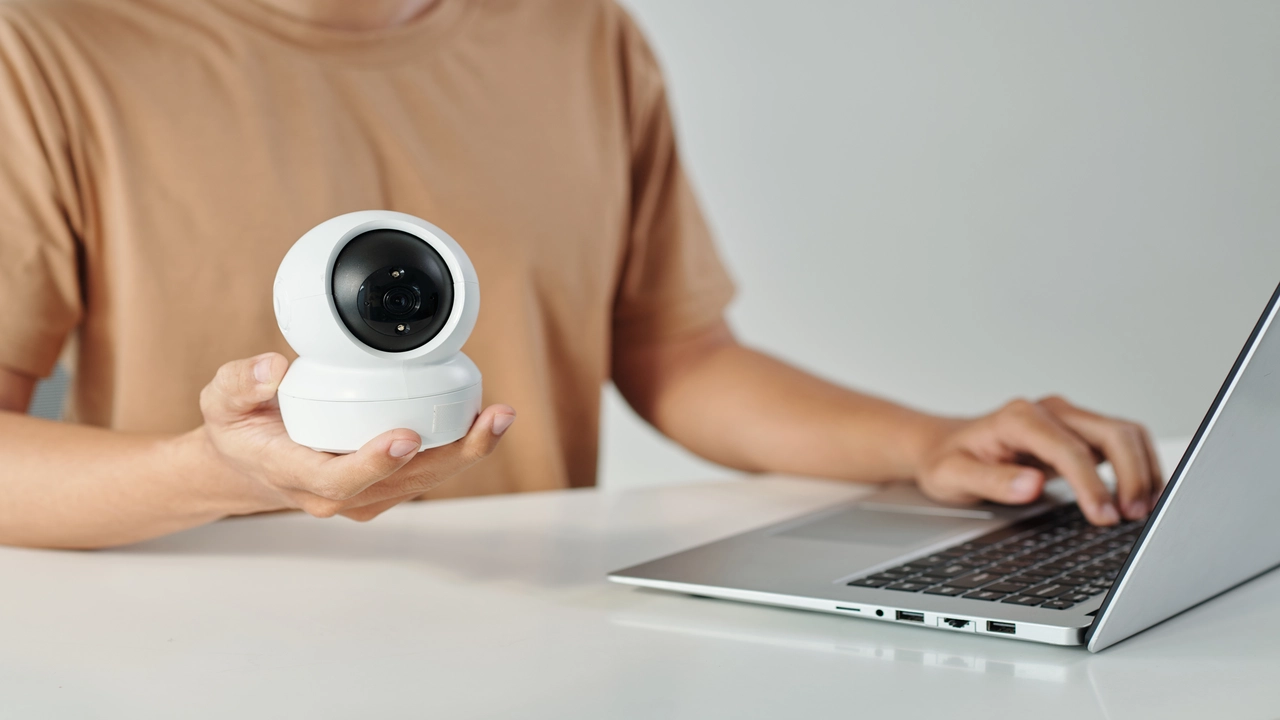Security Camera Recording Audio Legally:
CCTV systems have become common features in the recent past. The business people and even homeowners have resolved to install surveillance cameras to prevent and if the vice occurs capture some incidences. In addition, most security cameras also have a microphone that allows for audio recording capacity. This leads many to wonder – is it legal to record audio on your security cameras? The short answer to the question, is it legal for security cameras to record audio? is yes, as long as it is in most cases. However, there are some nuances and restrictions that one needs to remember.
Federal Wiretapping Laws
At the federal level, there are laws that prohibit the interception of oral communications through wiretapping. The principal federal statute is the Wiretap Act, which makes it unlawful to purposely intercept or eavesdrop phone conversations or oral communications without the permission of at least one of the parties to the conversation. Open visible security cameras, on the other hand, have been found, by most courts, to be exempted from the provisions of the Wiretap Act. If a camera is obvious, those in the range of the camera have no expectation of privacy, and thus the oral communications may be lawfully taped. Wiretapping laws can also be violated by private, hidden cameras if they capture audio without consent.
State Laws
While federal wiretapping laws permit most obvious security cameras to record audio, some states place additional restrictions:While federal wiretapping laws permit most obvious security cameras to record audio, some states place additional restrictions:
California – The state follows the two-party consent rule meaning all the parties involved in a conversation must give their permission before a conversation can be recorded. This means microphones and loudspeakers are limited to not record or broadcast any conversation where all parties have not agreed in advance to be recorded or broadcasted.
Florida – It is also unlawful in Florida to record a conversation without the consent of all parties involved especially where such parties had a lawful expectation of privacy. Public places might not be included.
Illinois - Illinois also has very rigid laws against eavesdropping, and it is unlawful to make an oral communication without consent from all involved participants. Some people opine that these laws may bar even legal use of security camera audio recording.
Maryland – Maryland prohibits both clandestine and overt audio surveillance in circumstances where the involved individuals have a right of privacy and have not both given consent.
Massachusetts – Massachusetts is a two-party consent state when it comes to making audio recordings. This kind of evidence is also prohibited, especially if it is in the form of concealed recording devices.
Montana – Montana has provisions that require notice when audio or video recording takes place in areas that are not open to the public. Without the consent of the other party, audio recording is unlawful and attracts a penalty of a fine and imprisonment.
Pennsylvania - It is unlawful in Pennsylvania to record any oral communication that any of the parties engaging in the conversation would have a right to expect that their communication is being kept confidential without the consent of all the parties involved in the conversation.
Washington – It is against the law to secretly record any private communication without permission from all the parties in Washington.
These two-party consent states apply more restrictions to audio recording, even for typical security cameras. The laws are aimed at preservation of privacy of a person. It is advisable to seek legal advice from an attorney before placing any listening devices or surveillance cameras that have the ability to capture sound as you may be violating the law in your jurisdiction.
Public Places vs Personal places
As with audio recording from security devices, whether it is legal or otherwise depends largely on whether the area being monitored is public or private. Taping of oral discourse in places that are public and conspicuous is ordinarily lawful under federal and most state laws. This incorporates taking photos or recording videos and voices in areas that are not very private such as corners, parking lots, corridors, stores, parks, and the likes. On private grounds where people would naturally assume privacy, rules on security camera audio recording are much more stringent.
Thus, in the limited private areas such as restaurants, banks or medical waiting areas, the degree of reasonableness of expectations of privacy varies from one jurisdiction to another. Some of the states allow the recording as long as there is a sign informing people that there is a recording going on or the cameras are easily visible. Some states outlaw secret taping of audio communications wherever parties to a conversation expect confidentiality of their oral discourse. This comprises of; offices, conference rooms, elevators, shelters etc, It is prudent to note that installers of listening devices in quasi-public interior spaces should ascertain to whether one-party or two-party consent is necessary for recording audio in the intended area.
Signage and Notice
As for wiretapping violation, in the cases of security cameras being installed in areas that are open to the public, it is recommended to place signs that inform individuals of the fact that such a security measure is actively being applied. Signs assist with eliminating assumptions of privacy and suggest consent for recording devices that are quite recognizable. However, even signage may not make secret audio recording legal in two-party consent states without permission from everyone present. It is advised that when state laws permit, posting signs to alert the public of the surveillance activity is desirable.
Employer Security Cameras
Some peculiarities should be taken into consideration in the case of employers’ installing the security video systems equipped with microphones to supervise employees. Workers will always have an infringement on their rights regarding privacy and the employment statutes may address spying on employees. The National Labor Relations Act has been found to bar secret taping of workers where no clear notice was given. Employers who make a point of telling the employees that they are being observed have more room to maneuver if the taping is only of the common areas of the workplace. Small business owners should seek legal advice before installing audio-enabled surveillance in offices, locker rooms, conference rooms or any place where employees have a right to privacy.
Home Security Cameras
In the case of homeowners installing video monitoring around residences, it may discourage intruders when they are recorded but violates their right to privacy when they are heard talking without their knowledge. Security cameras mounted outside, recording driveways and exteriors of buildings are probably safe from wiretapping laws in most states. However even exterior cameras that capture sound from outside a residence but accidentally or purposefully capture a first-floor window inside a building could be unlawful. In interior video systems such as nanny cams, all-party notification or consent is desirable to adhere to state laws. People owning houses should be very careful on the audio feeds from security cameras which may be directed to other people’s homes or walkways.
Penalties
If challenged, the use of the audio surveillance devices for prohibited purposes results in criminal charges and civil lawsuits. On the Federal level there is the Wiretap Act which sanctions any violation with fines or imprisonment not exceeding 5 years. States categorise illicit interception of electronic communications for the purpose of making an audio recording as felony or misdemeanour, with possible fines of as much as $10,000 and one to three years imprisonment per offence. In civil court, victims of secret surveillance can actually sue for punitive damages, attorney fees and trauma. Thus, consulting an attorney can assist in the avoidance of costly errors concerning the audio recording.
Best Practices
When setting up security camera networks with audio functions at a business or residence, following certain best practices can help avoid legal troubles:When setting up security camera networks with audio functions at a business or residence, following certain best practices can help avoid legal troubles:
-
Look into your state’s laws on surveillance as well as wiretapping for recording sound without permission. Comply with all the legal rules concerning the notices, disclosures, and consents for the placing of the listening devices.
-
Inform the users about the existence of the cameras that not only record videos but also record audio through the installation of warning signs. Reinforce notices periodically.
-
If there are no signs that prohibit the recording of images and videos, you should seek permission from the people to make the devices record audibly. Share with the staff and the members of the household if internal monitoring employs microphones.
-
Make sure that outside cameras are positioned to capture only the outside space and do not capture the neighbor’s property. Do not use audio feeds that might record other rooms or other areas of the building that would be considered private or may record people who may not anticipate being recorded.
-
Ensure the legal compliance of the monitoring system under labor laws before spying on your employees with security cameras equipped with microphones
-
Check the recordings once in a while to ensure that audio monitoring is within the legal bounds and is not overstepping on privacy rights. Mute problematic microphones that do not conform to policy limitations.
Be very careful with the audio monitoring since it can lead to illegal surveillance claims being made against you. As long as property owners make reasonable efforts to give notice to the people being monitored that there are audio recording devices in the vicinity, then it will be easier for these property owners to argue for legitimate security purposes. Some states have put in place strict consent laws which prevent even publicly visible cameras from recording audio. When it comes to monitoring equipment, the advancement of technology makes the way on how privacy can be respected even when exercising property access right a work in progress.
